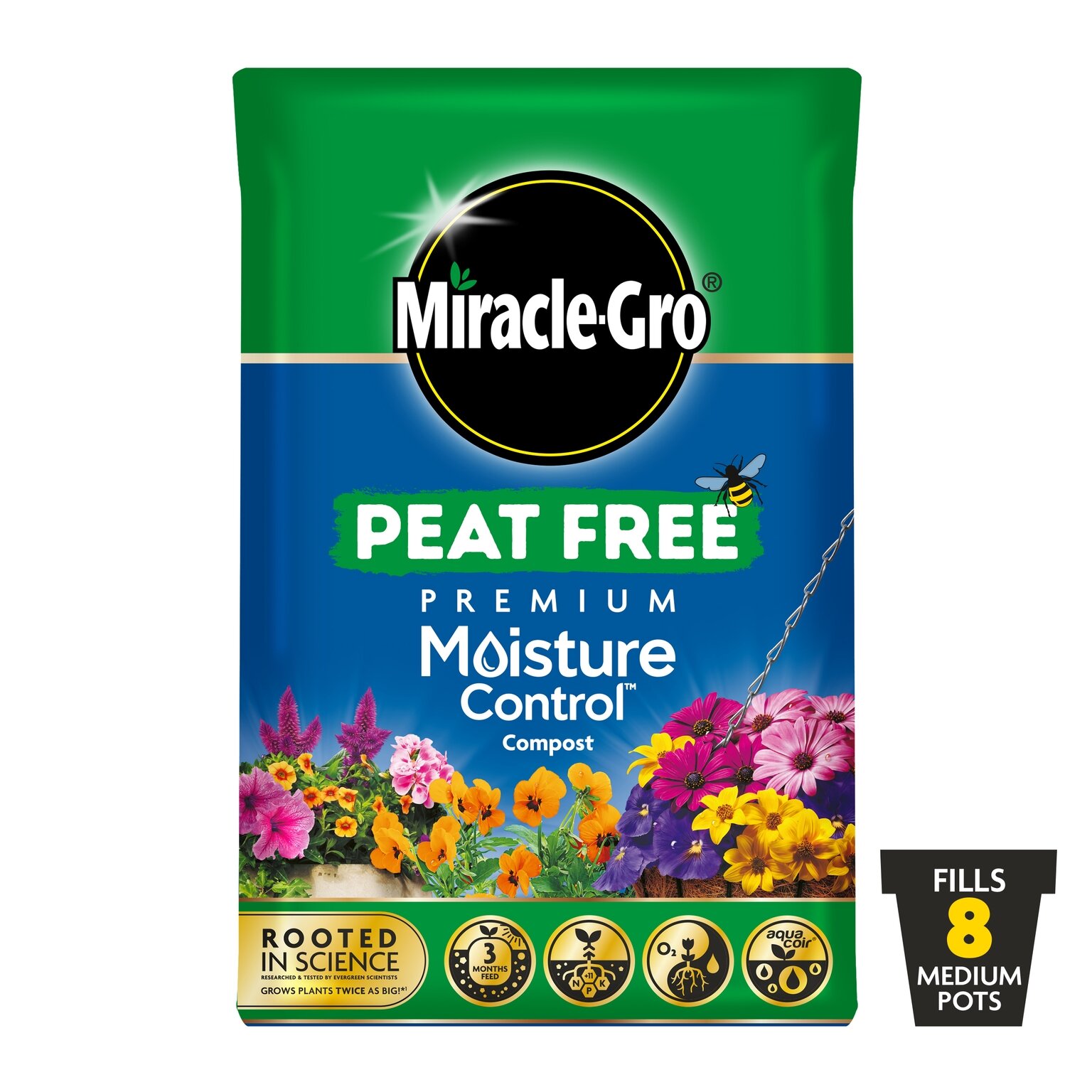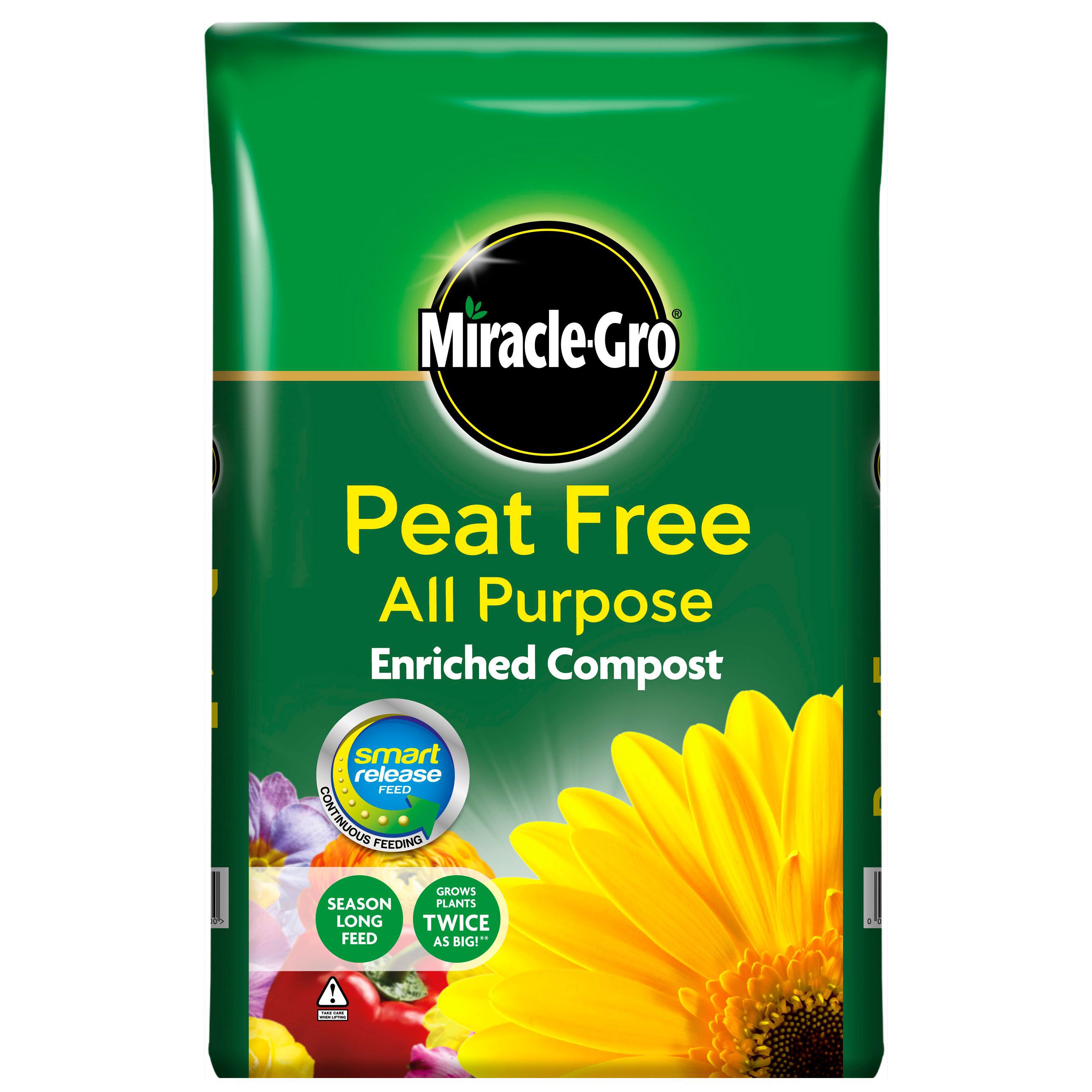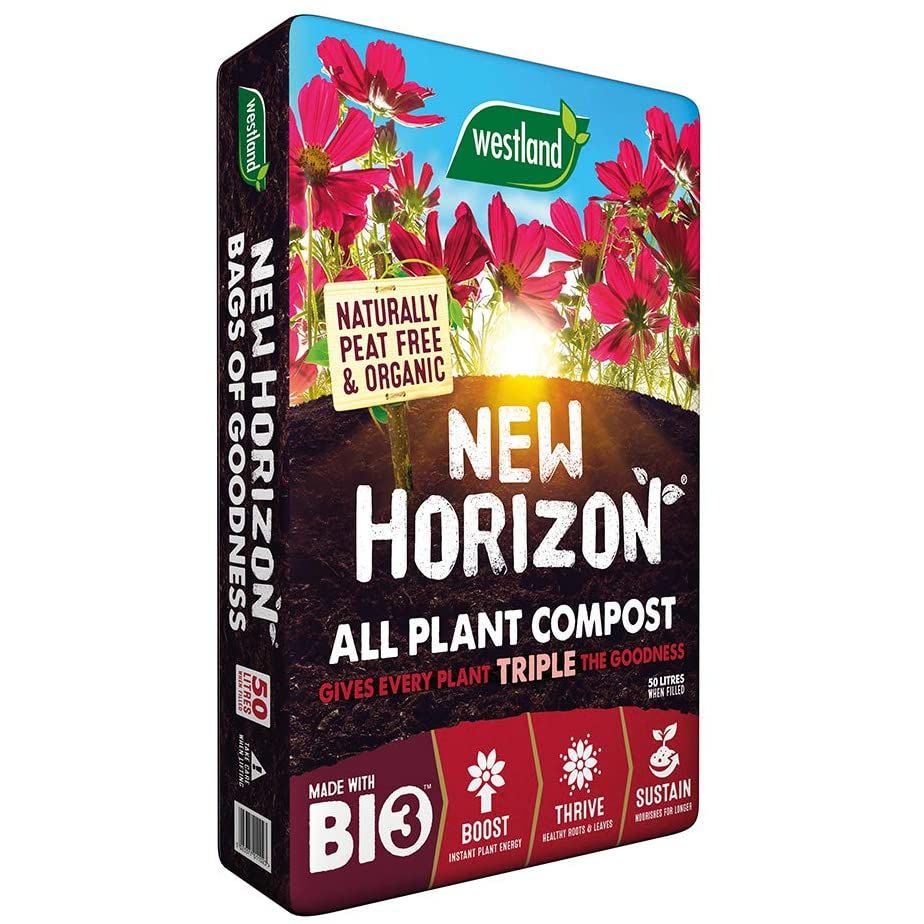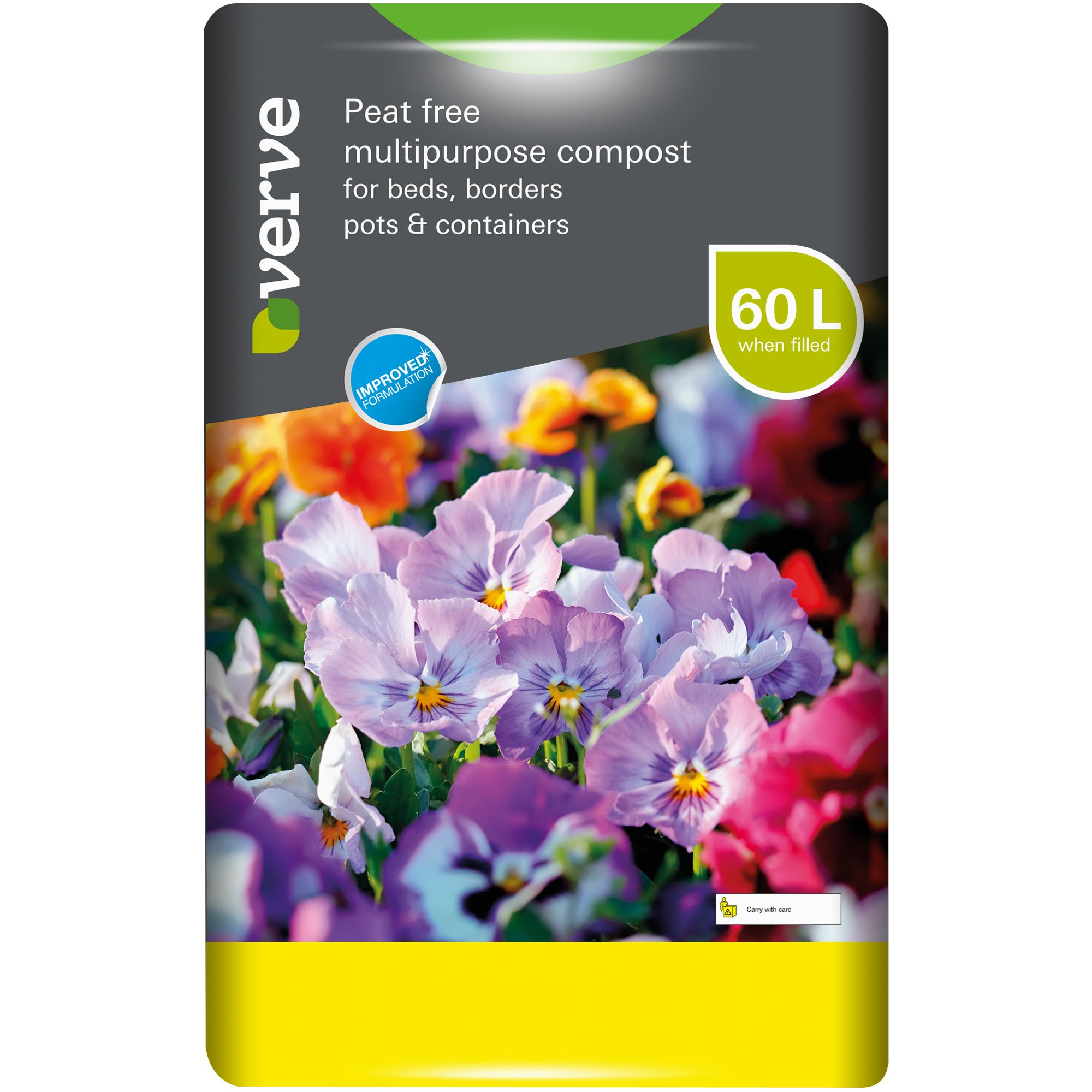Peat-Free Compost: A Sustainable Gardening Solution for Ireland and the UK
 Nix
Nix- •
- 08 MIN TO READ

Understood! Here’s a revised introduction that summarizes the critical points about peat and its environmental impact, without repeating the entire section that exists in another article:
Introduction
As gardeners across Ireland and the UK become more environmentally conscious, the demand for sustainable gardening practices is on the rise. One major concern is the use of peat in compost, which has significant ecological consequences, including habitat destruction and increased carbon emissions.
Peat bogs are rich ecosystems that play a crucial role in mitigating climate change, and their extraction threatens biodiversity. Furthermore, draining peatlands releases stored carbon, contributing to global warming.
Given these challenges, transitioning to peat-free alternatives is essential for protecting these vital ecosystems. In this article, we explore why peat-free compost is a better option and how you can integrate it into your gardening routine. For more information on peat-free gardening practices, see our article on Embracing Peat-Free Gardening.
Benefits of Peat-Free Compost
Switching to peat-free compost offers numerous advantages for both gardeners and the environment:
- Sustainability: Made from renewable resources like coir, composted bark, and green waste, peat-free compost is a more sustainable option.
- Nutrient-Rich: Many peat-free composts are enriched with organic matter, providing essential nutrients for plant growth.
- Water Retention: Peat-free alternatives often retain moisture effectively, reducing the need for frequent watering.
 A young man in a blue shirt and green apron, wearing orange gloves, focused on preparing soil in a seed tray within a vibrant greenhouse filled with various plants.
A young man in a blue shirt and green apron, wearing orange gloves, focused on preparing soil in a seed tray within a vibrant greenhouse filled with various plants.
How to Choose the Right Peat-Free Compost
When selecting peat-free compost, consider the following factors:
- Plant Type: Different plants have varying nutrient needs. Choose compost formulated for your specific plants.
- Usage: Whether for potting, seed sowing, or garden beds, ensure the compost meets your gardening requirements.
- Certification: Look for compost that is certified organic to ensure quality and sustainability.
Key Takeaway: Always read labels and choose compost that aligns with your gardening goals and environmental values.
Popular Peat-Free Compost Options in Ireland and the UK
Several brands offer high-quality peat-free compost suitable for various gardening needs:
1. New Leaf Compost
New Leaf Compost is made from sustainable, natural materials and is completely peat-free. It is designed to provide essential nutrients for healthy plant growth while retaining moisture effectively.
- Key Features:
- 100% organic and peat-free.
- Suitable for raised beds, containers, and as a nutrient-rich mulch.
- Available in bulk bags (approximately 950 liters).
Images:
 A bag of New Leaf Compost featuring its multi-purpose use and sustainability.
A bag of New Leaf Compost featuring its multi-purpose use and sustainability.
 Three colorful bags of New Leaf Compost, emphasizing its peat-free nature.
Three colorful bags of New Leaf Compost, emphasizing its peat-free nature.
More Information: New Leaf Compost
2. Miracle-Gro Peat-Free Compost
Miracle-Gro offers a peat-free all-purpose compost that is enriched with nutrients to support plant growth for up to three months. It is designed to provide optimal root structure and moisture retention.
- Key Features:
- Contains smart release feed for sustained nutrition.
- Suitable for a variety of plants, including flowers and vegetables.
Images:
 A bag of Miracle-Gro peat-free compost highlighting its moisture control benefits.
A bag of Miracle-Gro peat-free compost highlighting its moisture control benefits.

More Information: Miracle-Gro Peat Free All Purpose Compost
3. Westland New Horizon Compost
Westland New Horizon is a revolutionary peat-free compost made with BIO3 technology, designed to outperform traditional peat-based blends. It is suitable for all types of plants and is 100% sustainable.
- Key Features:
- Provides excellent moisture retention and nutrient release.
- Ideal for vegetables, flowers, and general gardening.
Images:
 A colorful bag of Westland New Horizon peat-free compost.
A colorful bag of Westland New Horizon peat-free compost.
 Package of Westland New Horizon compost featuring vegetables and flowers.
Package of Westland New Horizon compost featuring vegetables and flowers.
More Information: Westland New Horizon All Plant Compost
4. B&Q Peat-Free Compost
B&Q offers a range of peat-free composts suitable for various gardening needs, including multi-purpose and specific blends for vegetables and flowers. Their products are designed to be environmentally friendly.
- Key Features:
- Available in various sizes and formulations.
- Supports healthy plant growth without harming the environment.
Images:


More Information: B&Q Peat-Free Compost
5. Levington Peat-Free Compost
Levington's peat-free compost is enriched with John Innes, providing a balanced nutrient profile for strong root development. It is suitable for a wide range of plants, including flowers, fruits, and vegetables.
- Key Features:
- Feeds plants for up to six weeks.
- Ideal for use in pots, containers, and garden beds.
Images:
 Bags of Levington Peat-Free John Innes Compost showcasing their colorful designs.
Bags of Levington Peat-Free John Innes Compost showcasing their colorful designs.
 Levington Peat-Free Multi Purpose Compost highlighting its benefits for plant growth.
Levington Peat-Free Multi Purpose Compost highlighting its benefits for plant growth.
More Information: Levington Peat Free Compost with John Innes
Gardening Tips for Using Peat-Free Compost
Transitioning to peat-free compost may require some adjustments in your gardening practices. Here are some practical tips to help you succeed:
1. Understand Your Soil
Before you start planting, it's essential to understand your existing soil. Conduct a soil test to determine its pH, nutrient levels, and texture. This information will help you choose the right peat-free compost and any necessary amendments.
2. Mixing Compost
Consider mixing peat-free compost with your existing soil or homemade compost. This can improve soil structure and provide a balanced nutrient profile. For example, combining 50% peat-free compost with 50% garden soil can create an ideal growing medium for many plants.
3. Watering Practices
Peat-free composts often retain moisture differently than peat-based options. Monitor your plants closely, especially during the initial growth phase, and adjust your watering schedule accordingly. Use mulch to help retain moisture and suppress weeds.
4. Choosing the Right Plants
When starting with peat-free compost, opt for plants that thrive in such conditions. Many nurseries now offer a wide range of peat-free plants. Look for labels indicating that the plants were grown in peat-free compost.
5. Fertilization
Peat-free compost may have different nutrient profiles compared to traditional compost. Consider using organic fertilizers or slow-release options to ensure your plants receive adequate nutrients throughout the growing season.
6. Composting at Home
Creating your own compost at home can supplement your peat-free compost needs. Use kitchen scraps, garden waste, and other organic materials to create nutrient-rich compost. This not only reduces waste but also provides a sustainable source of nutrients for your garden.
 Composting food scraps is an excellent way to create nutrient-rich compost for your garden.
Composting food scraps is an excellent way to create nutrient-rich compost for your garden.
7. Seasonal Adjustments
Different seasons may require adjustments in your gardening practices. For instance, in colder months, consider using a thicker layer of mulch to protect your plants and retain moisture in the soil.
8. Experiment and Adapt
Gardening is often about trial and error. Don’t hesitate to experiment with different peat-free composts and plant combinations. Keep a gardening journal to track what works best for your specific conditions.
The Future of Peat-Free Gardening
As awareness of environmental issues grows, the gardening community is increasingly moving towards peat-free practices. Many organizations, including the RHS and National Trust, are advocating for peat-free gardening and providing resources to help gardeners make the transition.
1. Government Initiatives
In the UK, the government has set targets to phase out peat use in horticulture by 2024. This initiative aims to protect peatlands and promote sustainable gardening practices.
2. Community Support
Local gardening clubs and online forums can provide valuable support and resources for gardeners transitioning to peat-free practices. Engaging with these communities can offer insights and tips from experienced gardeners.
3. Educational Resources
Many gardening centers and organizations offer workshops and resources on peat-free gardening. Taking advantage of these opportunities can enhance your knowledge and skills.
Conclusion
Switching to peat-free compost isn't just a personal choice; it's a vital step towards protecting our ecosystems and combating climate change. By making this change, you’re helping to preserve biodiversity, reduce carbon emissions, and contribute to a greener future. Are you ready to make the switch? Explore local suppliers and start your journey towards a greener garden today!
References
- BBC Gardeners World Magazine. (2024). The best peat free compost for delivery 2024. Retrieved from BBC Gardeners World
- New Leaf Compost. (2024). Buy organic, peat free, multipurpose compost online. Retrieved from New Leaf Compost
- SylvaGrow. (2024). 100% Peat-free compost endorsed by the RHS. Retrieved from SylvaGrow
- National Trust. (2024). Going peat free | Gardening tips. Retrieved from National Trust
- Hillier. (2024). 14 Tips and Tricks for Peat Free. Retrieved from Hillier
Suggested Posts
All PostsAllAll PostsAllEmbracing Peat-Free Gardening: A Sustainable Approach for UK Gardeners
 Nix
Nix- •
- 07 MIN TO READ


